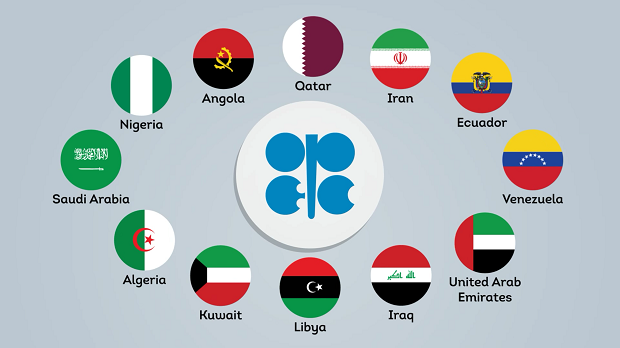Organization of the Petroleum Exporting Countries (OPEC)
- OPEC is an intergovernmental organization of 14 nations
- The 14 countries accounted for an estimated 44 percent of global oil production and 73 percent of the world’s “proven” oil reserves
- OPEC’s stated mission is “to coordinate and unify the petroleum policies of its member countries and ensure the stabilization of oil markets, in order to secure an efficient, economic and regular supply of petroleum to consumers, a steady income to producers, and a fair return on capital for those investing in the petroleum industry”
- The OPEC Conference is the supreme authority of the organization and consists of delegations normally headed by the oil ministers of member countries
- The Conference ordinarily meets at the Vienna headquarters, at least twice a year and in additional extraordinary sessions when necessary
About OPEC
It is an intergovernmental organization of 14 nations as of February 2018, founded in 1960 in Baghdad by the first five members (Iran, Iraq, Kuwait, Saudi Arabia, and Venezuela), and headquartered since 1965 in Vienna, Austria. As of 2016, the 14 countries accounted for an estimated 44 percent of global oil production and 73 percent of the world’s “proven” oil reserves, giving OPEC a major influence on global oil prices that were previously determined by American-dominated multinational oil companies.
OPEC Members
Observers: Since the 1980s, representatives from Egypt, Mexico, Norway, Oman, Russia, and other oil-exporting nations have attended many OPEC meetings as observers



